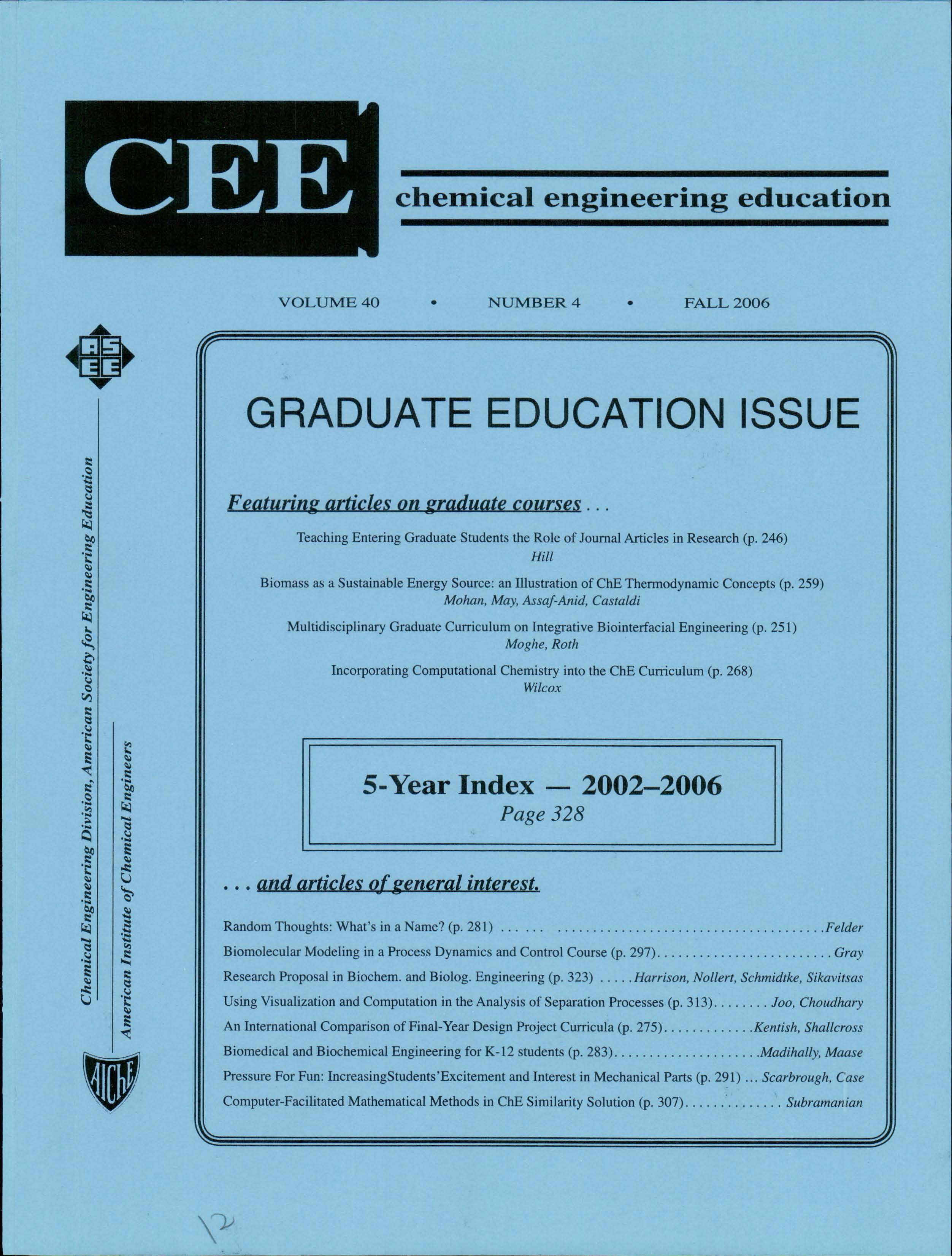Multidisciplinary Graduate Curriculum on Integrative Biointerfacial Engineering
Abstract
A wide range of biotechnological and biomedical processes and products involves the design, synthesis, and analysis of biological interfaces. Such biointerfaces mediate interactions between living cells or intracellular species and designed materials or biologics. Incorporating the experiences of a NSF-sponsored IGERT (Integrative Graduate Education and Research Traineeship) program at Rutgers University (www.igert.rutgers.edu), this paper reviews the foundations and implementation of a graduate curriculum focused on biointerfaces. The curriculum is designed to build laterally beyond the current core curriculum of graduate engineering programs in chemical and biomolecular engineering or bioengineering, while accommodating cross-disciplinary graduate students from allied engineering programs as well as physical sciences and life sciences. The biointerfacial curriculum comprises three core courses: (1) Integrative Molecular and Cellular Bioengineering, (2) Microscale and Nanoscale Biointerfacial Systems, and (3) Biointerfacial Characterization. By virtue of integrating principles based on phenomena that span multiple scales, compositions/components, and biological properties, this curriculum could impact graduate educational opportunities for researchers studying biomaterials, biomolecular science and engineering, tissue engineering, and nano-and microsystems bioengineering.


